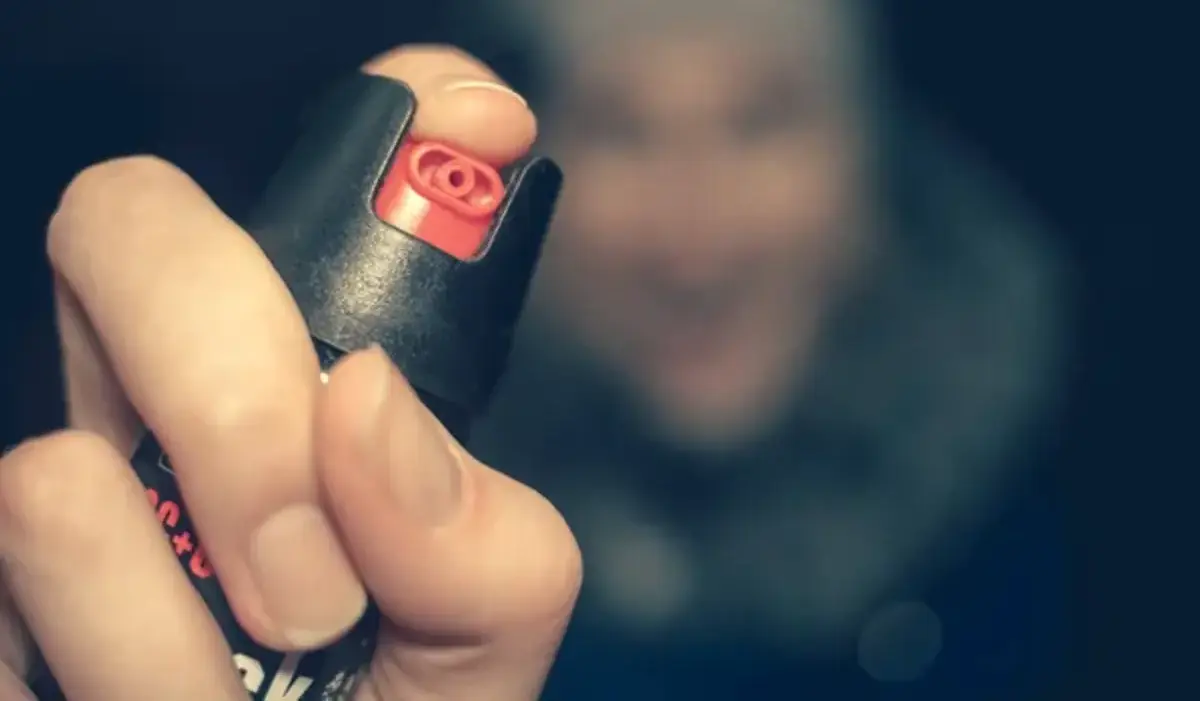Understanding the Implications of Using Pepper Spray Indoors
Pepper spray is a popular self-defense tool that contains oleoresin capsicum (OC), a natural chemical derived from chili peppers. It’s widely used to deter attackers and provide a sense of security for individuals in potentially dangerous situations. However, when using pepper spray indoors, there are various factors to consider, as it can have significant implications on the environment and individuals within the confined space. This article aims to shed light on the potential consequences of deploying pepper spray in an enclosed room, ensuring you’re well-informed and equipped to make responsible decisions in self-defense scenarios.
What Happens If You Spray Pepper Spray in a Room?
Pepper spray is known for its potent effects on the respiratory system and mucous membranes. When discharged in an enclosed room, it can lead to the following consequences:
1. Diffusion of Chemical Particles
Pepper spray releases fine chemical particles that can spread quickly within the confined space, affecting everyone in the vicinity.
2. Irritation of the Respiratory System
Inhaling pepper spray particles can cause severe irritation to the respiratory system, leading to coughing, choking, and difficulty breathing.
3. Burning Sensation in Eyes and Skin
Direct contact with pepper spray can result in a burning sensation, temporary blindness, and skin irritation.
4. Disorientation and Panic
Exposure to pepper spray can induce disorientation and panic, making it challenging to navigate the environment safely.
5. Potential for Collateral Damage
Using pepper spray indoors increases the risk of affecting unintended targets, such as family members or innocent bystanders.
6. Increased Risk of Fire
Pepper spray is flammable, and when deployed near a source of ignition, it can pose a fire hazard.
7. Aggravation of Pre-existing Medical Conditions
Individuals with respiratory or cardiac issues may experience a worsening of their conditions due to exposure to pepper spray.
8. Spread of Chemical Residue
Pepper spray residue can remain in the air and on surfaces, potentially affecting occupants long after its initial use.
9. Difficulty in Ventilation
Indoor deployment of pepper spray may limit ventilation options, prolonging the exposure to its effects.
10. Legal Implications
Using pepper spray inappropriately or against local laws can result in legal consequences.
READ: Can You Bring Pepper Spray to School? Find Out!
Safety Measures When Using Pepper Spray Indoors
If you find yourself in a situation where using pepper spray indoors is unavoidable, it’s essential to follow these safety measures to minimize the risks:
1. Assess the Situation
Evaluate the threat and determine if deploying pepper spray is necessary. If possible, consider seeking an alternative means of escape.
2. Positioning and Aim
When using pepper spray indoors, aim for the lower body to avoid accidental direct contact with the eyes or face.
3. Create an Exit Strategy
Always have an escape plan in mind, and make sure you have a clear path to leave the room after deploying pepper spray.
4. Ventilate the Area
After using pepper spray, open windows, and doors to allow fresh air to enter the room and dissipate the chemical particles.
5. Seek Medical Attention
If you or anyone else experiences adverse effects from the pepper spray, seek medical attention immediately.
6. Practice Proper Storage
Store pepper spray in a safe and secure location, away from children and potential ignition sources.
Frequently Asked Questions (FAQs):
Q: Can I use pepper spray for self-defense indoors?
A: While pepper spray can be used for self-defense indoors, it should only be used as a last resort in life-threatening situations due to the potential risks it poses within confined spaces.
Q: Will using pepper spray indoors affect pets or children more severely?
A: Yes, both pets and children may be more vulnerable to the effects of pepper spray due to their smaller size and sensitivity.
Q: How long does the effect of pepper spray last indoors?
A: The effects of pepper spray indoors can linger for several minutes to hours, depending on factors like ventilation and the amount used.
Q: Can using pepper spray indoors cause permanent damage?
A: In most cases, the effects of pepper spray are temporary and cause no long-term damage. However, it can exacerbate pre-existing medical conditions.
Q: Is it legal to use pepper spray indoors?
A: The legality of using pepper spray indoors varies by location. It’s essential to familiarize yourself with local laws and regulations before use.
Q: Can pepper spray cause a fire if used indoors?
A: Yes, pepper spray is flammable, and using it near a source of ignition can potentially lead to a fire.
Conclusion: Proceed with Caution
To summarize, using pepper spray in a room can have significant implications on the environment and the people inside. While it can be an effective self-defense tool, it should be used responsibly and as a last resort in life-threatening situations. Always prioritize safety and consider alternative means of escape whenever possible.
READ: Can You Bring Pepper Spray to A Concert?
Bliss Ferdinand is a resilient single mother and the founder of pepperspraymum.com, a blog dedicated to empowering women and promoting personal safety. With a passion for self-defense, Bliss shares her knowledge and experiences to help other mothers protect themselves and their families. Through her blog, she educates her readers about the effective use of pepper sprays, offering valuable insights, product reviews, and practical tips on staying safe in various situations. Bliss’s commitment to her community has inspired many women to take charge of their own security, making pepperspraymum.com a go-to resource for those seeking practical advice and peace of mind

